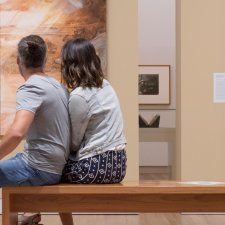I wrote The Timeless Land at my home in Katoomba during the period from September 1937 to July 1940. In the writing of it, which entailed considerable research, I came to realise more clearly how strong and how necessary is man’s instinct to preserve his tribal memories.
History is to a community what memory is to an individual. Without memory we should be unable to learn from our past experience, and a knowledge of its history is in the same way indispensable to a nation.
Even the Aborigines of this continent, Stone Age men having no written language, kept their past alive by songs, legends and ceremonies.
A record of the first settlement by white men was conscientiously and deliberately preserved in official documents. But no less valuable, and in some ways more illuminating, are the surviving personal letters whose preservation was haphazard and probably often accidental. Through these we are able to discover human beings and recognise in them the virtues and failings, the foibles and attitudes which in the end determine the course of history.
Australia was fortunate in its first governor, Arthur Phillip, not only because he was a just and able administrator but because he glimpsed visions of a future when nothing in the present seemed to justify them.













